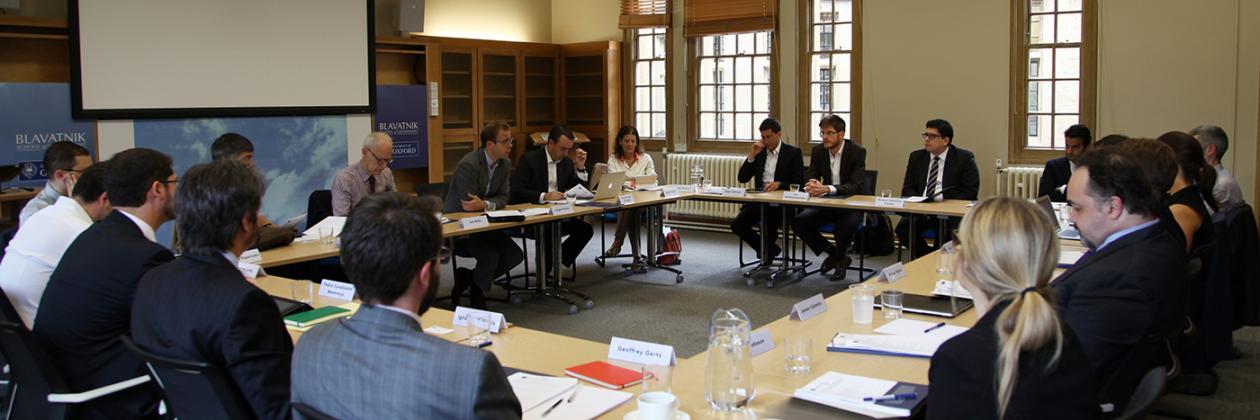GEG Hosts High-Level Workshop on Investment Protection
In recent years there has been a rapid increase in costly and far-reaching international investment treaty claims, including many targeting sensitive areas of public regulation. Governments around the world are revisiting their engagement with the investment treaty system in the wake of these controversial awards.
Latin America is at the forefront of this debate. Argentina has recently decided to settle many of its claims with foreign investors in the aftermath of its 2001 financial crisis, but its experience with the International Centre for Settlement of Investment Disputes (ICSID) raised questions about the legitimacy and effectiveness of the regime. Ecuador, Bolivia, and Venezuela have all withdrawn from ICSID and instead supported a regional alternative dispute settlement system. With no ratified bilateral investment treaties, Brazil has always been the outlier in the international investment regime and has recently worked towards a radically different type of investment treaty. Meanwhile, countries like Chile, Peru, and Mexico have decided to pursue more incremental changes and are currently negotiating a Transpacific Partnership Agreement, which is likely to include more traditional investment protection rights.
On 27 June GEG hosted a day-long workshop on the future of the international investment protection regime. The workshop brought together negotiators, arbitrators, and academics to debate the merits and weaknesses of the existing architecture, to examine the key challenges facing governments, and to explore concrete steps governments and others could take to improve the regime.
Participants addressed four key questions:
- How are Latin American states preventing and managing investment disputes, and what are the lessons from these experiences?
- Has the investor-state arbitration system depoliticised investment disputes, or do capital exporting states still apply diplomatic pressure to protect their investors operating abroad?
- What practical steps can Latin American states take to reform and reshape the investment protection regime so that it better meets their needs?
- What are the costs and benefits to states of cancelling investment treaties and exiting ICSID?
Further outputs from the workshop, which was part of an ongoing GEG project on the investment protection regime, will be published shortly.





